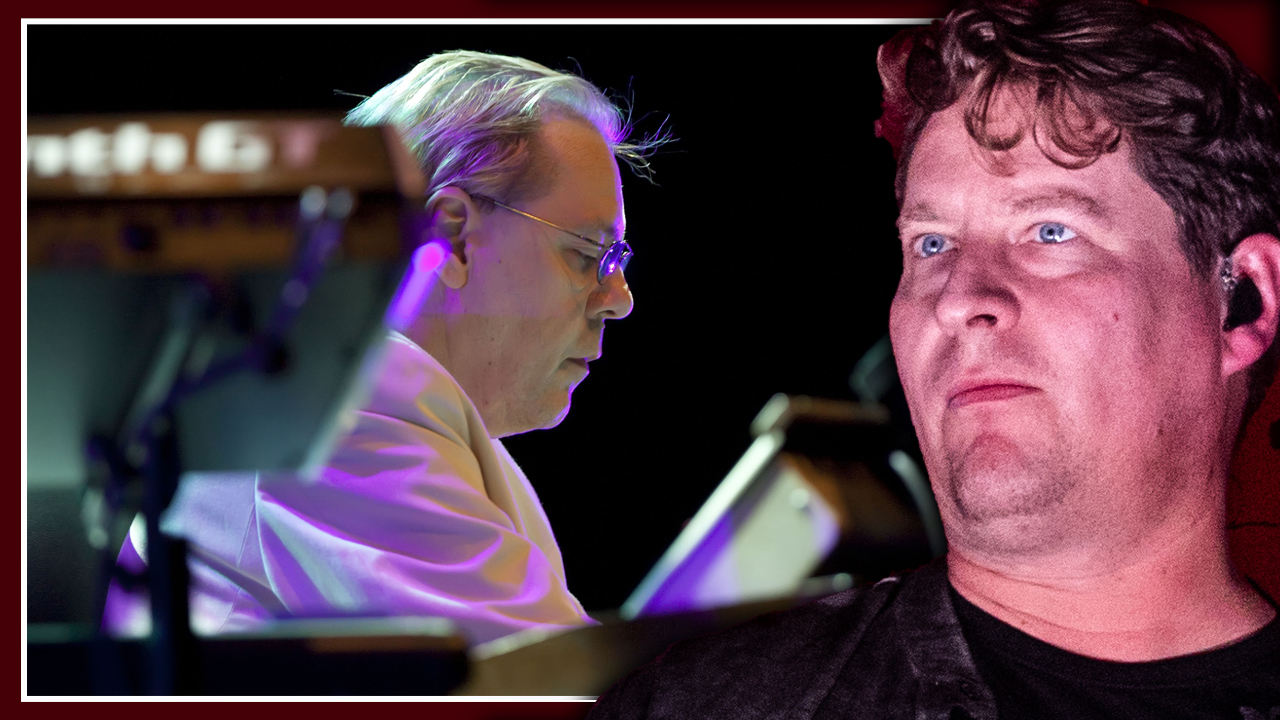“He opened possibilities for all future post-rock”: How Editors’ Russ Leetch discovered the deep, detailed world-building of Klaus Schulze, via Vangelis and an independent record store
When the British band wanted to create their own dystopia, a passionate shop owner led him to the German electronic composer’s prog masterpieces

Select the newsletters you’d like to receive. Then, add your email to sign up.
You are now subscribed
Your newsletter sign-up was successful
Want to add more newsletters?

Every Friday
Louder
Louder’s weekly newsletter is jam-packed with the team’s personal highlights from the last seven days, including features, breaking news, reviews and tons of juicy exclusives from the world of alternative music.

Every Friday
Classic Rock
The Classic Rock newsletter is an essential read for the discerning rock fan. Every week we bring you the news, reviews and the very best features and interviews from our extensive archive. Written by rock fans for rock fans.

Every Friday
Metal Hammer
For the last four decades Metal Hammer has been the world’s greatest metal magazine. Created by metalheads for metalheads, ‘Hammer takes you behind the scenes, closer to the action, and nearer to the bands that you love the most.

Every Friday
Prog
The Prog newsletter brings you the very best of Prog Magazine and our website, every Friday. We'll deliver you the very latest news from the Prog universe, informative features and archive material from Prog’s impressive vault.
It took Editors bassist Russ Leetch a while to discover that some of the music that means most to him was created before he was born. The 80s child discovered the deep, detailed work of the late German electronic composer Klaus Schulze in 2009 – and, in 2013, he told Prog he’d never looked back.
“I am forever indebted to Polar Bear Records in Birmingham for expanding my musical palette. Steve, the owner of this great independent store, insists that music for him stopped as soon as the 80s began.
I know this to be not totally true; but his favourite artists are the original pioneers – the truly psychedelic and the first of their kind. I’m sure drugs stopped been good when the 80s began too…
Since I was born in 1982 I needed a musical education. Stepping into that store, and coming across records that I had no clue existed, expanded my understanding and made me much more of a musichead.
When Editors were writing our third record, In This Light and on This Evening, we’d started to work with producer Flood, and we wanted more synthesizers and original analogue sounds in our music. We were referencing Blade Runner as we tried to create our own dystopian world.
Moondawn gives any budding electronic artist a grounding in how to use a sequencer
Vangelis’ soundtrack fits the Ridley Scott environment very well – but, following a recommendation from Steve, I began to think a more edgy version would include Klaus Schulze, and specifically his Dune record.
“The rise that comes 17 minutes into the opening track opens possibilities for all future post-rock – the blend of the bubbling synths and the expert cello playing is a most suited match.
Sign up below to get the latest from Prog, plus exclusive special offers, direct to your inbox!
Klaus creates the mixture of machine versus human spirit perfectly. And when Arthur Brown’s vocals come in on the second track, Shadow Of Ignorance, it becomes otherworldly.
After Dune I wanted to discover more, and there’s a lot more to discover: 40 or so albums. Some specialise in certain instruments; Cyborg, his second album from 1973, specialises in drone, while Moondawn, released in 1976, gives any budding electronic artist a grounding in how to use a sequencer.
The length of these records means I can lose myself for a day, sometimes not remembering any melodies, but lost in a trance. The thought that his work ethic means there will always be more to come is a wonderful thing.”
Jo is a journalist, podcaster, event host and music industry lecturer who joined Kerrang! in 1999 and then the dark side – Prog – a decade later as Deputy Editor. Jo's had tea with Robert Fripp, touched Ian Anderson's favourite flute (!) and asked Suzi Quatro what one wears under a leather catsuit. Jo is now Associate Editor of Prog, and a regular contributor to Classic Rock. She continues to spread the experimental and psychedelic music-based word amid unsuspecting students at BIMM Institute London and can be occasionally heard polluting the BBC Radio airwaves as a pop and rock pundit. Steven Wilson still owes her £3, which he borrowed to pay for parking before a King Crimson show in Aylesbury.
You must confirm your public display name before commenting
Please logout and then login again, you will then be prompted to enter your display name.



